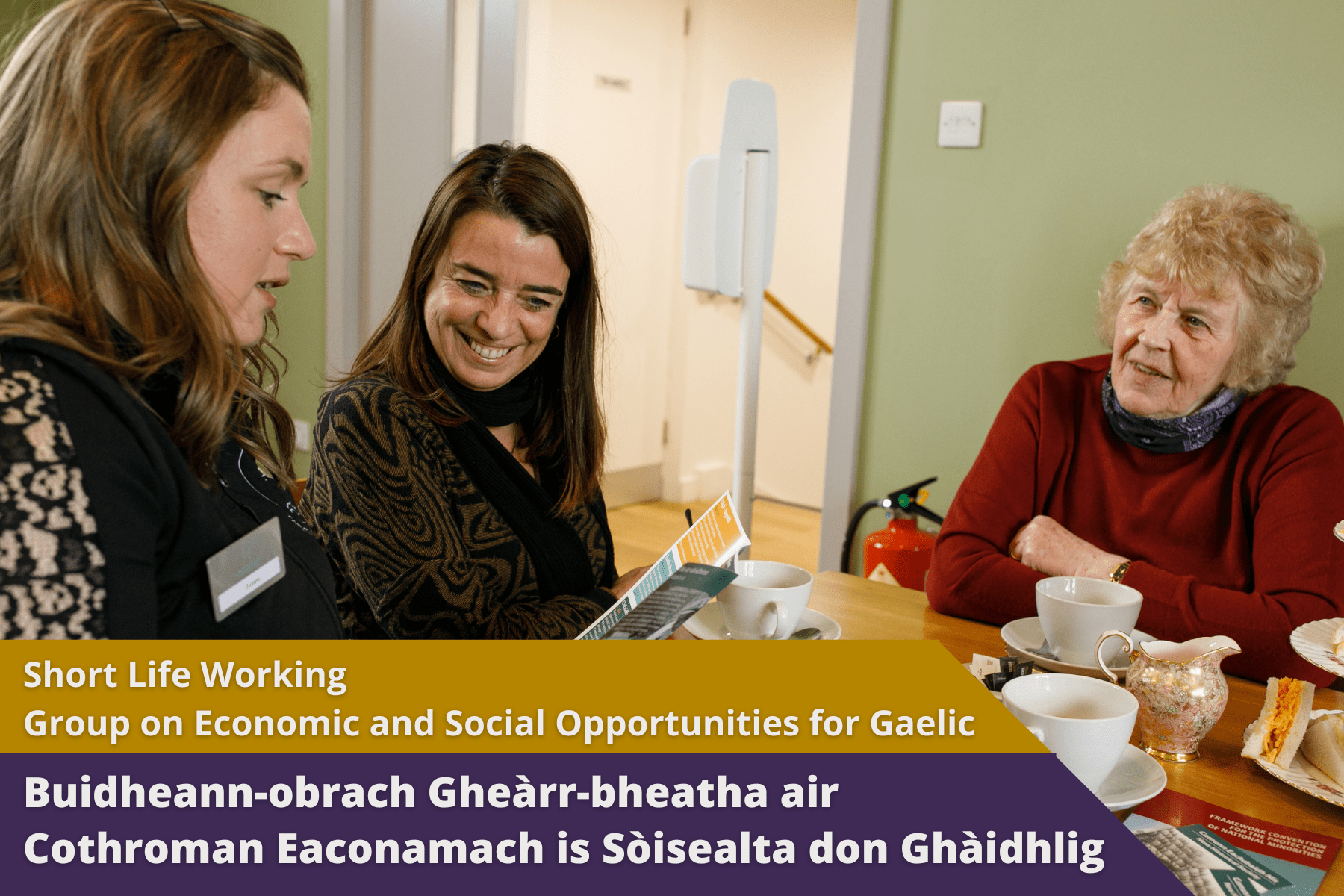Short Life Working Group on Economic and Social Opportunities for Gaelic: Report to the Cabinet Secretary for Finance and the Economy

In March 2022, the Cabinet Secretary for Finance and the Economy convened a Short Life Working Group (the Group) with an aim to strengthen Gaelic by means of a focus on economic opportunities and to strengthen the economy by making the most of Gaelic opportunities. The Group has published a report this morning explaining the context in which the group worked, some of the challenges facing Gaelic and also the good opportunities the languages has for positive social, economic, cultural, and educational outcomes.
The report is available on the Scottish Government’s website in both Gaelic and English and can be read here.
As part of the process, Bòrd na Gàidhlig me twith the Group on two occasions before submitting a paper to the Group, reporting and commenting on childcare, health and social care, tourism, education and teacher recruitment, housing, and a range of other issues impacting Gaelic in Scotland today. Bòrd na Gaelic have also made this paper available to read here.
On publication of the report, Mairi MacInnes, Chair of Bòrd na Gàidhlig, said:
“We welcome the Short Life Working Group’s Economic and Social Opportunities for Gaelic report to Cabinet Secretary for Finance and the Economy. It clearly demonstrates the links between economic opportunities the language creates and the changes required to safeguard and grow Gaelic. Bòrd na Gàidhlig also welcome the group’s acknowledgment that additional funding is required to take forward new initiatives and Gaelic policy development and that it is an important aspect of the National Strategy for Economic Transformation. We were pleased to provide evidence to the Group across a range of policy areas.
“This report highlights the need for traditional communities of Gaelic speakers to be maintained and increased. This echoes the National Gaelic Language Plan which emphasises the demographic challenges island and rural communities face. These include lack of housing, the working-age population, poor transport links and social challenges and provides a range of solutions. It also recognises the role and importance of the urban communities in increasing the number of Gaelic speakers and use of the language.
“Bòrd na Gàidhlig is committed to working collaboratively to help implement these recommendations and drive positive change.”
